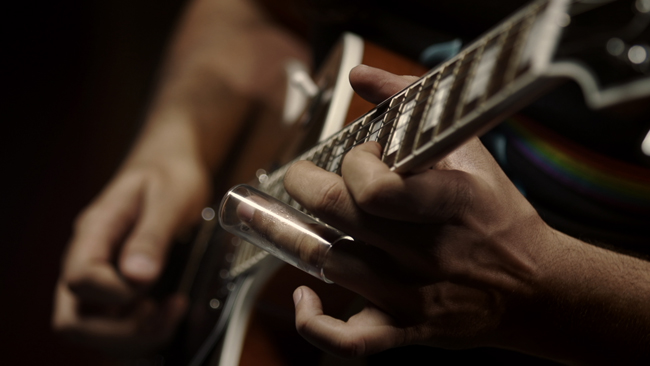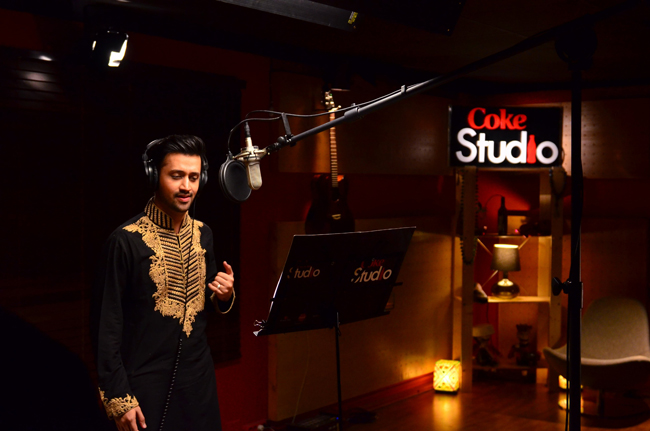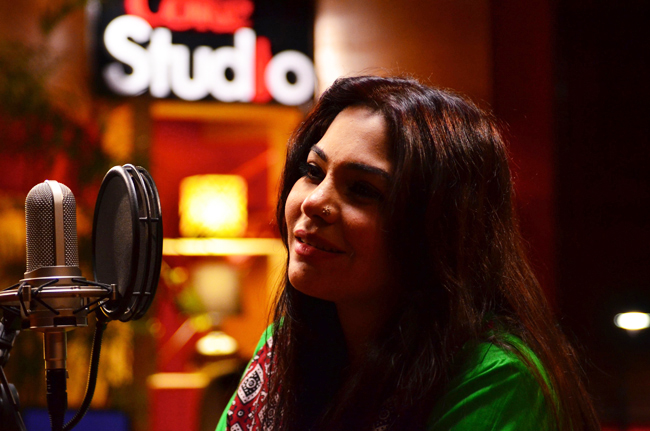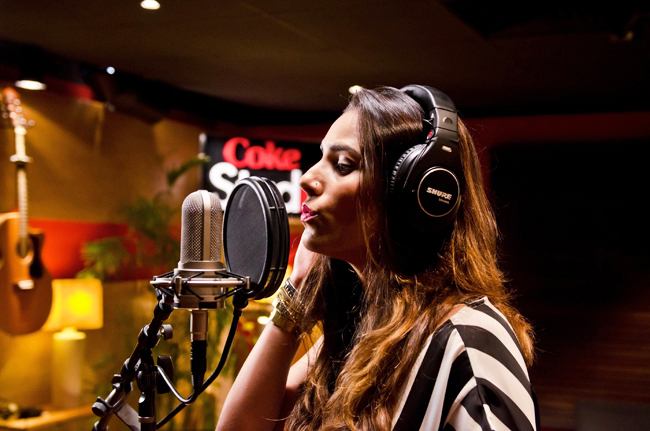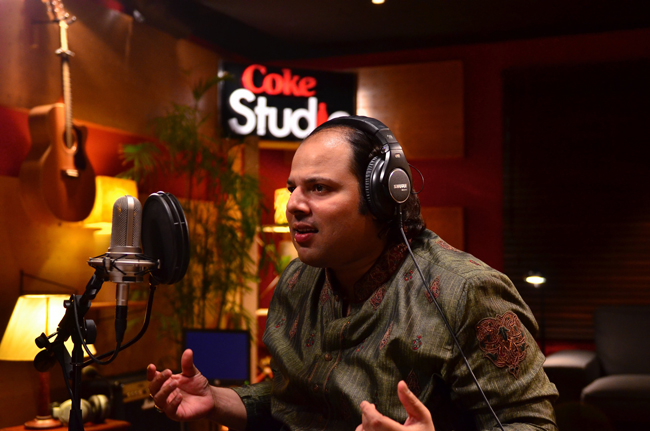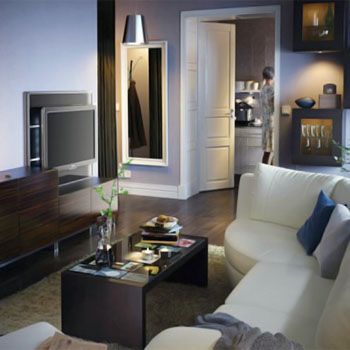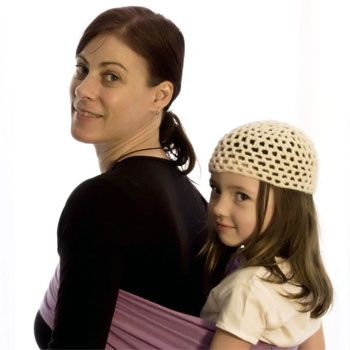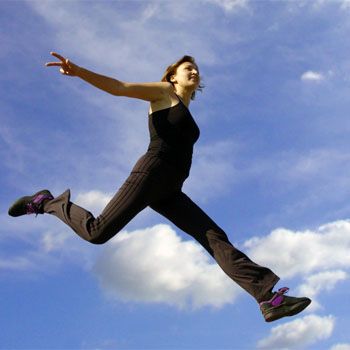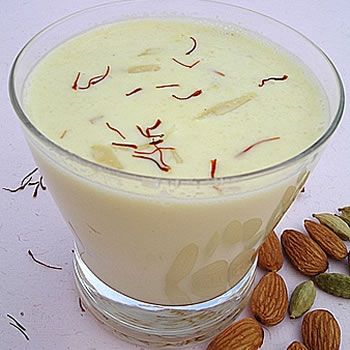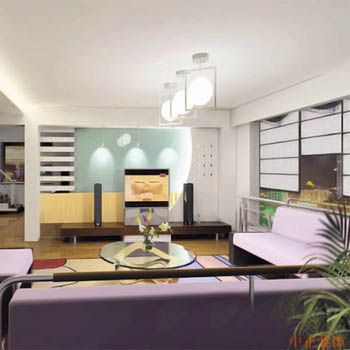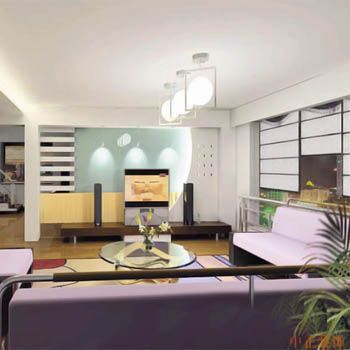Coke Studio released its Third Episode of Season 6 featuring “Channa” by Atif Aslam, “Neer Bharan” by Zara Madani featuring Muazzam Ali Khan, “Raat Gaey” by Zoe Viccaji” and “Yaar Vekho” by Sanam Marvi. Episode Three of Coke Studio Season 6 was aired on 8th December across all leading broadcast networks nationwide.
‘Channa’ marks Atif Aslam’s returns to the Coke Studio platform this Season and is a song that is a declaration of love thrown into a canvas of mixed instrumentation encapsulating the true state of contentment. The song was conceptualized by Atif himself; its melodic inspiration stemmed from a rhythm that finds its base in the beat of the dhol.
This rhythm was transferred into the instrumentation of the song giving the overall pulsing groove adorned with the subtle picks at the African Harp – the Kora. A song that Atif feels quite connected with musically, ‘Channa’ which means ‘Darling’, is a song that sees a progression of deep, almost heart tugging waves stringed by the orchestra in Serbia that finds its calm in the ever present pulse that takes the song to its climactic transition into the world of disco funk – highlighting the sense of satisfaction felt in the state of true love.
Finding the union of Eastern classical inspiration and deep, encompassing, electronic vibes is Zara Madani’s ‘Neer Bharan’. The song is the product of an experiment that took the pattern of an electronic track and placed the layers of an age old classically based bandish within the fold to create a story that’s almost cinematic. With the elements of Teen Taal, the song finds its driving inspiration in the nighttime raag Baageshri stirring up a feeling of dark, delicate longing.
The wordings derive from folklore of the subcontinent painting the moment of yearning set against the backdrop of the night’s enchantment. As the lyrics flow, the song’s progression is almost prowling in its search for the song’s object of obsession – the alluring Nand Laal – a character thematically portrayed in the vocals of Muazzam Ali Khan towards the song’s resolution. A song that has an almost theatrical feel in its tale, the Eastern chant like rhythm is brought to life with the constant electronic groove by the Serbian house band and the percussive elements of the dhol while the string orchestra encircles the storm layering the depths of human angst in the face of separation.
‘Raat Gaey’ is a song set in today’s world, through which Zoe Viccaji addresses the everlasting existential nature of life through the voice of a woman in search of answers in the night. A song that is theatrical in tone and reminisces of a time where noir met jazz, Zoe had originally penned the lyrics down in English as the song was titled ‘Quarter to Three’. Upon her musical journey, Zoe feels this song was a tipping point for her, as it reflected a time where she herself was unsure of her path and found the night time on the receiving end of her questions.
With its universal theme, the song was later translated into Urdu to become ‘Raat Gaey’ and the song’s musical arrangement was further worked upon by Vladimir Nikolov from Macedonia, lending the essential deep jazz elements that the song required, as performed by the musicians in Belgrade, Serbia. ‘Raat Gaey’ presents a pure jazz song sung in Urdu with an almost anachronistic feel as one imagines the song being sung onstage in what could be the 50’s or 60’s demonstrating that not only does a genre such as jazz remain timeless but can also be boundless in its expression.
Sanam Marvi returns to Coke Studio this Season with the soulfully poignant ‘Yaar Vekho’. Based on the raag Bhopali, the song is a reflection of a moment in time that contains a message that remains as relevant and powerful today as it was in the years it was conceived. The song is an amalgamation of observations by the sufi poets Sultan Bahu and Sachchal Sarmast – from different times yet with views and themes that have spanned almost 600 years’ worth of human thought. Thematically, the song focuses on the eternal idea of being within the world but not of it, to aspire for a higher understanding of the concept of mercy within the various faces and trials of the world.
The verses mention that while in the world of custom and ritual, in the search of true freedom and enlightenment, one must look inside and find mercy. The song’s tone is solemn yet with a tinge of hope that is demonstrated through the instrumentation and arrangement of the string orchestra and the melancholic beauty of the piano. With the acoustic guitar feel, the song becomes a listening experience that is almost nostalgic. The song’s overall flow emphasizes on the simplicity of forlorn thought that accompanies the process of inner realization and hopes for a semblance of peace. Ultimately, the song urges for resolution to be found within.
“Channa” – Performance Credits
Serbian House Band
Goran Antovic | Piano, Keyboards
Branko Trijic | Guitar – Acoustic and Electric
Dejan Antovic | Bass, Electric Upright
Jovan Satric | Drums
Kaw Dialy Madi Sissoko | Kora
String Orchestra
Violins
Tijana Milosević
Tea Balint
Svetlana Stančev
Predrag Žikić
Selena Jakovljević
Slavica Perić
Tamara Živković
Violas
Boris Brezovac
Aleksandra Damnjanović
Cellos
Julijana Marković
Katarina Stanković
Upright Bass
Srdjan Djordjević
Brass Section
Miloš Nikolić – Trumpet
Aleksandar Petković – Alto Sax
Nikola Demonja – Tenor Sax
Mladen Lukić – Trombone
Bojan Vukelić – Baritone Sax
Backing Vocal
Rachel Viccaji
Zoe Viccaji

